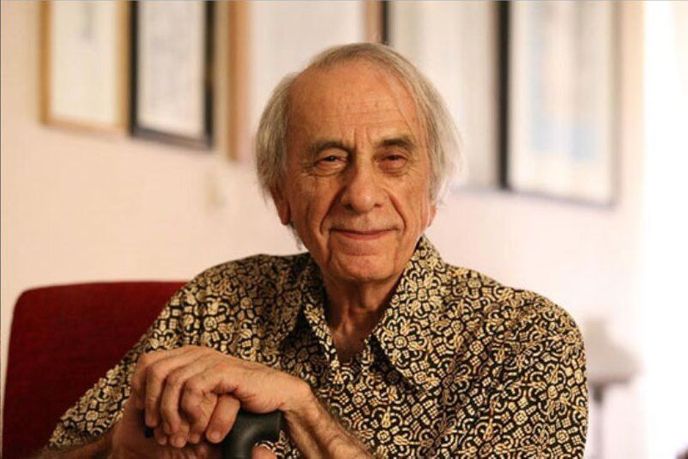First Death memorial of Jalal Satari
Jalal Sattari was an Iranologist, mythologist, writer and translator. He undertook his university studies in Switzerland, where he also got his PhD degree. Swiss psychologist Jean Piaget was amongst his supervisors. Jalal Sattari wrote some 71 books on anthropology, mythology, and psychology. He died on july 31 2021, in Tehran.
From his series of notes:
The language of the theater is a special language, or to be more precise, the language is used in a special way in the theater, that is, instead of guiding thought or imply concepts becomes its special work, as if more like a poetic, lyrical or esoteric and mysterious flow (mystique), and It transmits a psychological or para psychological state, like the experience of mystical discovery and intuition (tremendum mysterium), which in "primitive" societies, evokes the role of mythology in that state, and thus the purification (catharsis) of the myth is realized.
But in a time when the purifying power (cathartque) of popular myths is decreasing, naturally the language of theater (and in the second place music) takes over that action, that is, it has the same psychological effect of mythological purification (catharsis).
As a result, as the flourishing of myths and religious rituals fades away and their connection with consciences that were once direct and immediate becomes weaker, dramaturgy inevitably shows the virtues and vices of a person and his political, social, moral and philosophical preoccupations is interested.
And the playwrights, instead of drinking from the source of common mythology of the nation, take their inspiration from the conscience of each individual, and a person creates his myth not according to the name-bearing parasite that he gives himself, but based on his real or possible experiences establishes.
Therefore, the goal of the theatrical theme is always to confirm universal or individual standards (metaphorical in the "prelogical" mentality and objective or subjective in the "logical" mentality). And this confirmation is also shown every time in the form of disturbing a balanced state, and in conflict with the standards or habits that a person is in conflict with.
As a result of each play, it is ultimately a sense of awareness and awakening of the mind and the attention of the soul and the attention of the conscience and a kind of stance, and therefore if the balanced and balanced relationship between the hero and the world or his environment is not disrupted and disturbed, it is not possible for the dramatic flow at least To emerge in the current sense of theater. One-sided praise may be appropriate in a novel or poem; But in a dramatic effect, of course, it is not justified.
Jalal Satari
Ritual and myth in the theater
Tahori Publications, second edition, 2013
Jalal Tehrani's plays have a strong dramatic structure, which means that the main meaning is expressed in the form of short, sharp and concise dialogues, without long-winded and full-blown language, in a simple and straightforward language. And myth-making and historiography in the old-fashioned traditional way do not weigh on it, but this does not mean that its dramas are easy to understand and simplistic and like taking photos of "random events".
On the other-hand, realizing the relevance of the story in the field of drama requires reflection and familiarity with his writing style. Therefore, it should not be assumed that the themes of these simple and profound dramas are independent of the preoccupations of the time and the present-day concerns of our society and culture, although all this is expressed in a simple language and in a sometimes metaphorical and always humorous manner, which does not have a mundane and detail-oriented tone. It finds meaning and examples in many places.
Jalal Satari
"Magic of Theater". Center publication. second edition. P. 59



